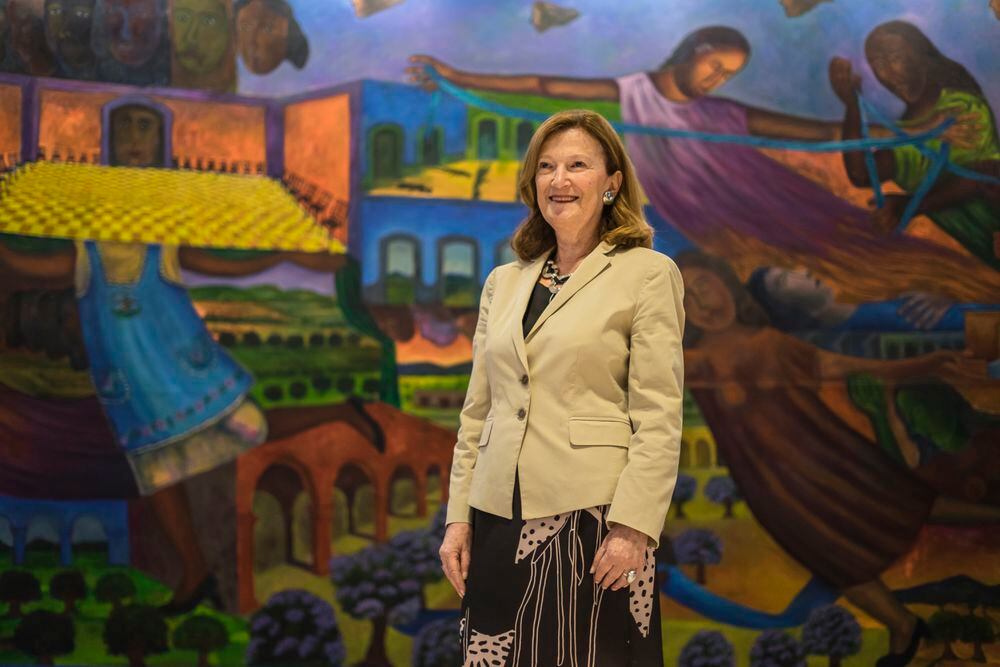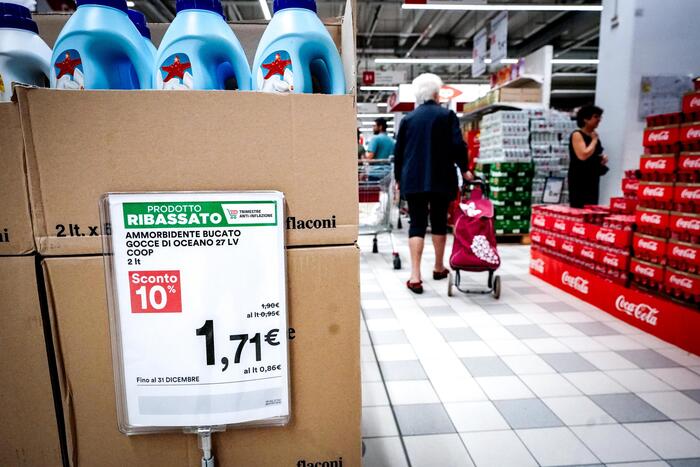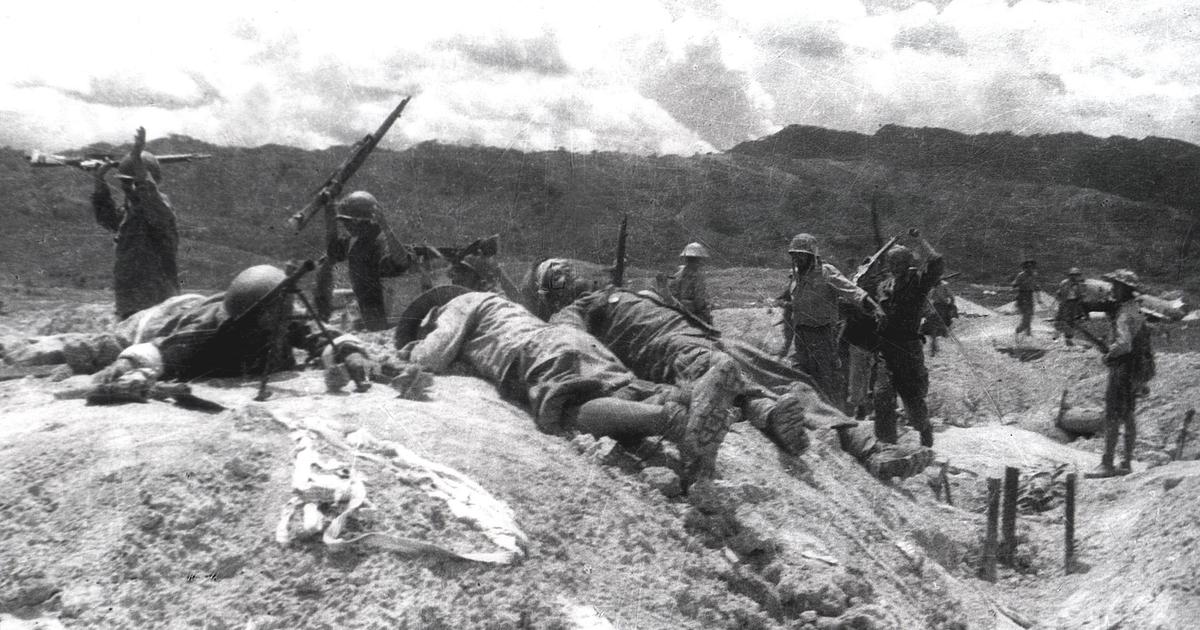Nora Lustig identified early on that the coronavirus would be a major disruption, something that she attributes to the years she lived in Mexico, where she went through some of the strong economic crises that the country has suffered.
Lustig, a professor of Latin American Economics at Tulane University, understood that the virus could represent a serious blow to the global economic system and called her academic counterparts in Argentina - her native country - in late February, two weeks before it was registered. the first contagion.
“Some academic colleagues in Argentina work in shantytowns there,” says the PhD in Economics from the University of Berkeley, referring to informal settlements, “and I asked them what protocols are they thinking of following?
And people said to me: 'Nothing, nothing'.
Like they didn't have it on the radar ”.
Particularly in Argentina, in Greater Buenos Aires, "these are the shantytowns where the contagion source exploded. I am a person who does give a lot of weight or attention in general to possible adverse systemic shocks," says Lustig in a telephone conversation with EL COUNTRY from New Orleans The virus, as she sensed, led to a dramatic drop in global demand for goods and services.
Author of multiple books, her focus has always been on inequality and, therefore, poverty and development, issues that today afflict Latin American governments in their efforts to prevent their populations from falling — even further — into conditions of vulnerability due to the pandemic.
Confinement has led millions who work informally to completely lose their income.
Millions will fall into poverty this year.
How many exactly?
It depends on who you ask.
Estimates by international organizations range from 20 to 45 million people.
For her part, Lustig estimates that in only four economies (Argentina, Brazil, Mexico and Colombia) 25 million will fall into poverty due to the pandemic.
Q.
We have seen mitigation programs in the form of transfers or direct aid in some countries.
What do you think of them?
Could they open the door to a post-pandemic universal basic income program?
A.
In the work that we have done, we measure the impact after mitigation measures and in the case of Brazil and Argentina, mitigation measures have been very important due to the number of beneficiaries and because the transfer is significant.
To the point that some authors estimate, even we in the microsimulation exercise that we did, that in the case of Brazil poverty and inequality after these transfers is lower than immediately before the pandemic.
The measures are very strong in these two countries.
In the case of Colombia, measures were introduced, but to a much lesser extent, and the effect is then considerably smaller.
The case of Mexico stands out: of the large Latin American countries, it is the only one that has not increased transfers.
You ask me if these transfers open up the possibility of a universal basic income.
So far, they are emergency transfers during the pandemic.
In Brazil, according to our estimates, the relief program costs about two points of gross domestic product (GDP).
It is an expensive program that, given Brazil's fiscal restrictions, is not viable to be permanently maintained for the time being.
In the case of Argentina, the measures cost about 1% of GDP.
Given the fiscal constraints, I don't think a basic universal income can be maintained that is truly universal for the entire population.
However, I believe that the responses have shown that compensatory measures can be introduced that cover a significant part of the population, including informal workers.
The idea of a universal basic income (or that covers broad sectors of the population) is attractive because it implies that a large part of society will always have an income “floor” in the face of
adverse
shocks
.
However, it must be taken into account that the more the transfers become universal, the less resources to combat extreme poverty.
The dilemma is inevitable.
Q.
2020 began with protests in Colombia, Chile and Ecuador.
People were protesting inequality and social injustice.
In January, nobody imagined that a global pandemic would truncate these demonstrations.
What do you hope will happen to this discontent now that it has been interrupted by the pandemic?
A.
The wave of protests I believe has been associated with a combination of accumulated frustrations in the face of an unjust social contract and the interruption (or in some cases, even reversal) of the progress experienced during the boom years of the first decade of this century. .
For about 10 years, practically all the countries in the region experienced a reduction in inequality and poverty.
The end of the commodity boom interrupted that progress.
Some countries faced recessions with increases in poverty and inequality before the pandemic.
Now, with the pandemic, the situation has become even more uncertain.
Poverty and inequality in the short term are exacerbating.
The dilemma of protecting lives and protecting sources of income is, unfortunately, real.
Likewise, the differentiated effect of school closings among children from poor families and from families with resources has set in motion the mechanisms for greater inequality in the future.
Recovering the human capital of children from poor households becomes a priority in a context of scarce fiscal resources.
Likewise, as the growth prospects are less auspicious, the distributional struggles will be exacerbated just when the fiscal space to meet the demands will be more restricted.
These circumstances can trigger major social conflicts.
Q.
In this part of the world, the debate around poverty often centers on the creation versus the distribution of wealth.
What can you tell me about this approach to the problem?
R.
It is a debate that, at least in my own observation of the evolution of thought, both in the academic field and in the field of public policy, has lost steam considerably.
There is now much more agreement that equity and inclusion are favorable conditions for growth, not necessarily in conflict.
For approximately 25 years, economic thinking has been transforming from a position that considered equity and economic growth (efficiency) as objectives opposed to the opposite: greater equity and inclusion can not only lead to greater growth, but that under certain circumstances greater inclusion may be a necessary condition for sustained growth.
Of course, certain types of public policies can address these two objectives.
For example, if productive investment is heavily taxed, no matter how much resources are used to redistribute income to the most disadvantaged sectors, the negative effect on economic growth can cancel out the benefits of progressive redistribution.
In contrast, if collection is done carefully and redistributive policies are aimed at increasing the human capital of the poor population and the mechanisms that subsidize and protect oligopolistic rents are eliminated, inclusion and economic growth will go hand in hand.
It is interesting that views like these are not only argued by the left.
They have already become part of
mainstream
thinking
including in organizations such as the IMF.
Q.
In your career years, how have attitudes around poverty changed?
A.
Before, I had to swim much more upstream, especially when I studied and talked about inequality.
Now the concern with inequalities (not only in the distribution of income but inequality in its multiple dimensions including the roles that society assigns to people based on their sex or ethnicity) has become central in a fairly generalized way.
The covid-19 revealed another important thing.
Not only did it brutally transparent inequalities, but it also made transparent the danger that inequalities pose for society as a whole.
The impossibility of following the guidelines of quarantines and health measures in poor neighborhoods in Latin America has been one of the main reasons for not being able to stop the contagion in the region, today considered one of the epicenters of the pandemic.
Ignoring the conditions of the most deprived exacerbates the difficulties to contain the spread of the virus and thus increases and lengthens the costs of the pandemic.















